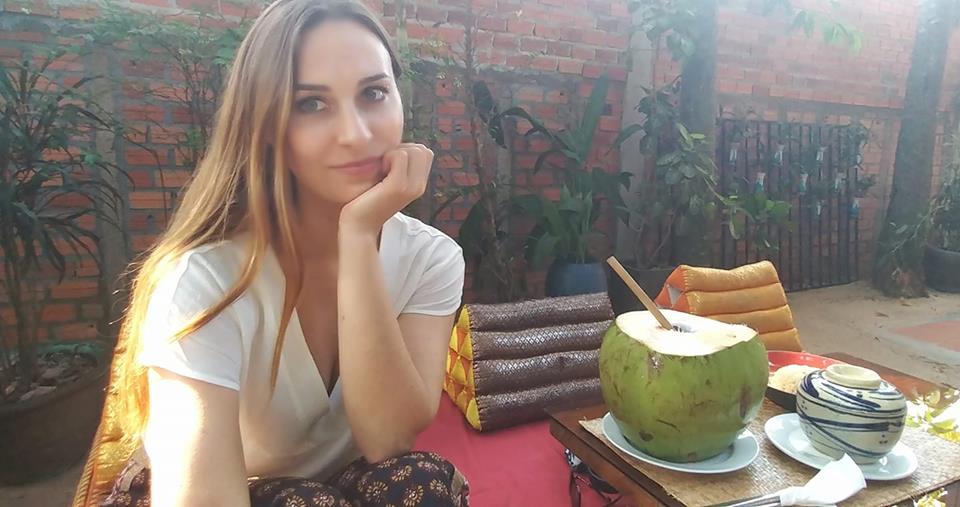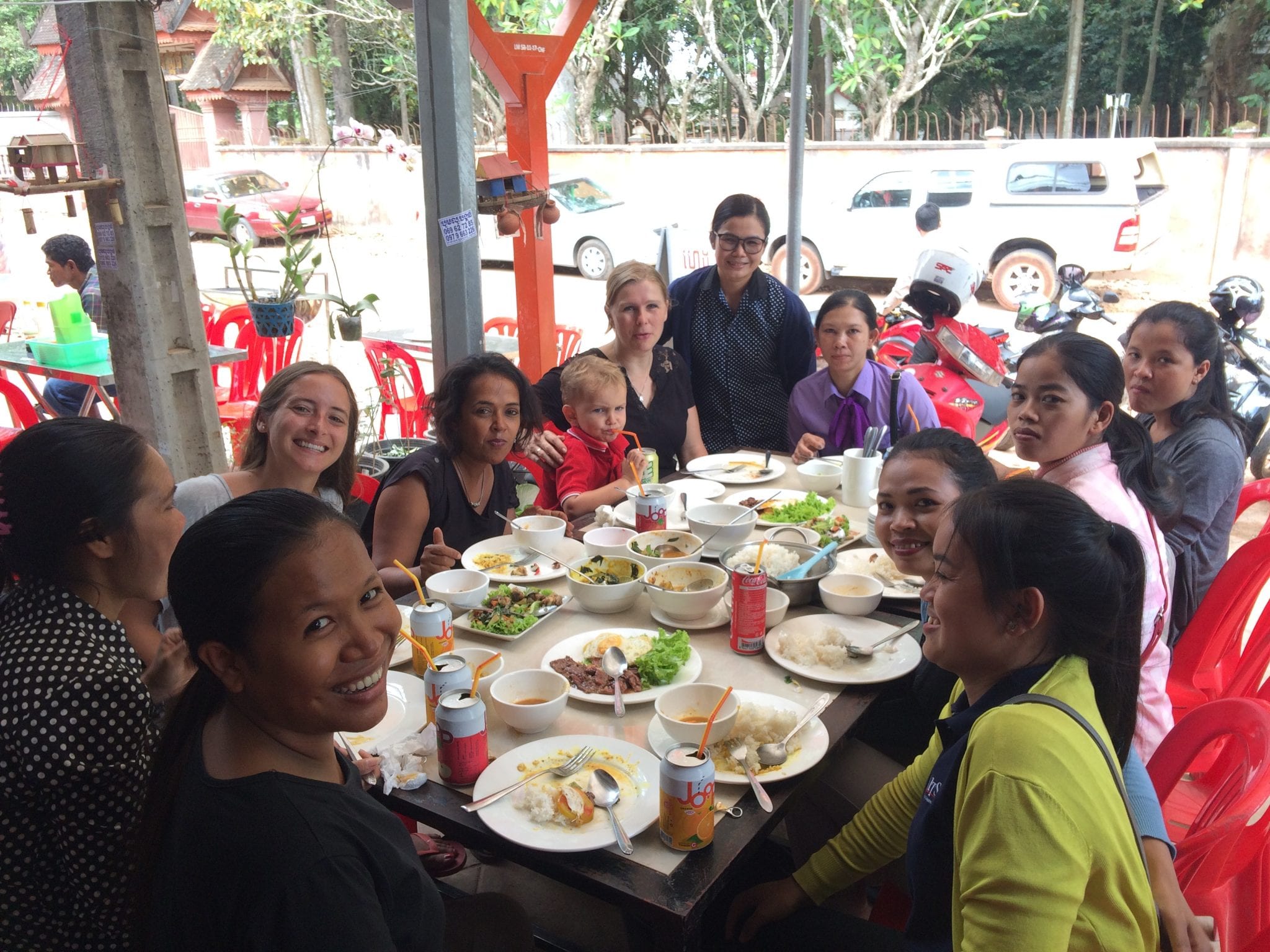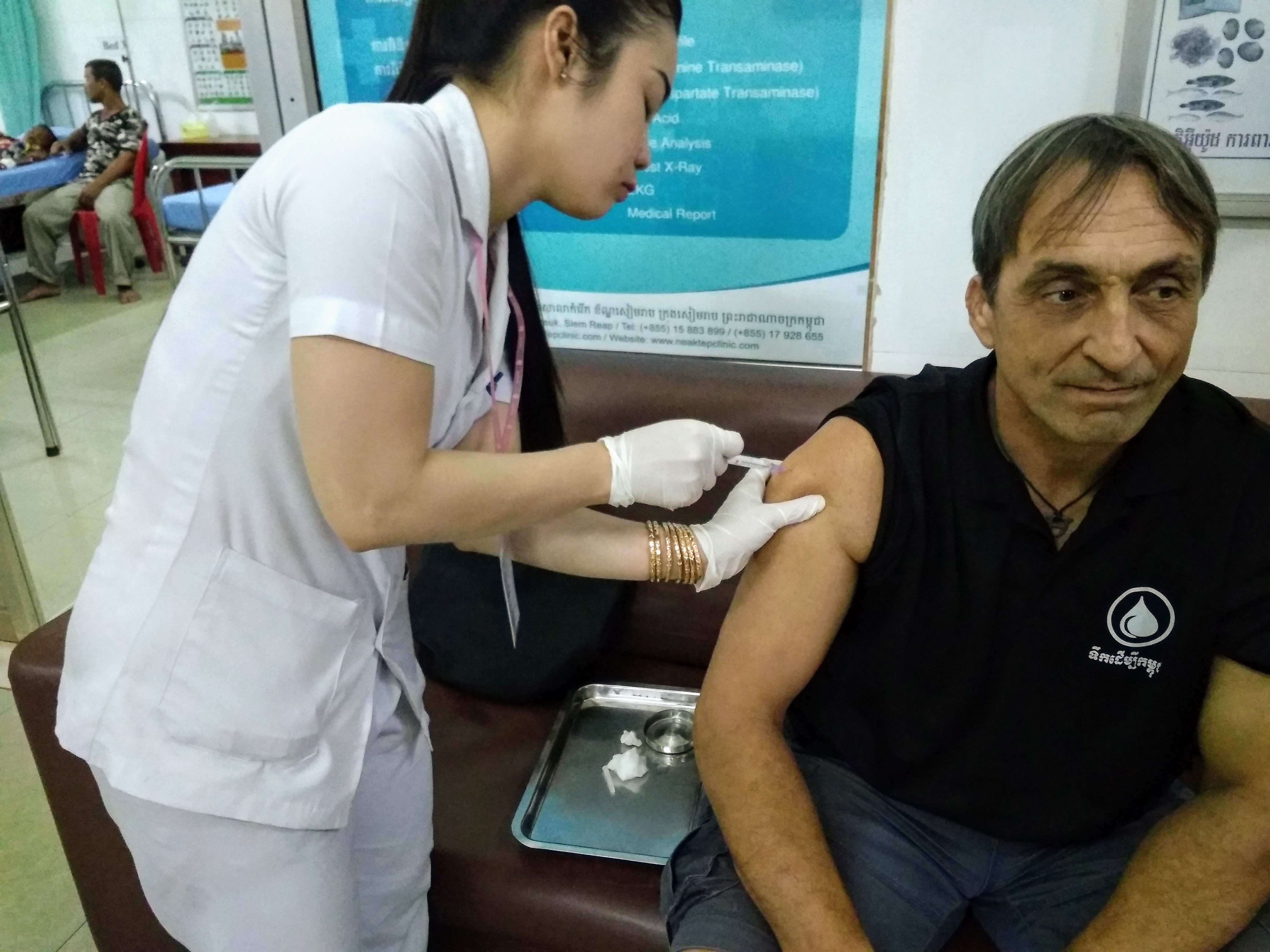
Travelling and volunteering in Cambodia can be a wonderful adventure—it’s a chance to be immersed in a different culture with an extraordinary cuisine and breathtaking sights, all while doing something good for the community. Staying healthy and safe is an important part of enjoying your time abroad. Here are some tips on how to minimise the risk of being afflicted while in Cambodia.
Basic hygiene rules
- Wash your hands often, and especially before eating.
- Keep a small bottle of hand sanitiser with you, in case soap and water are not available.
- Do not touch or feed any animals that you’re not familiar with.
- Drink a lot of water! Dehydration is the main cause of illnesses amongst most travellers.
- Make sure you have sunscreen and a hat when you’re out and about.
- Wear loose and long sleeve clothing that protects you from the sun and bug bites.
Eating
Street food is everywhere in Cambodia, all for very cheap. Sampling the local street food is one of the best things about travelling—you get the chance to taste something new while taking in some of the local hustle and bustle. Street food is perfectly safe most of the time, and yet it’s one of the most common ways of getting sick. Sometimes it is under-prepared or simply not washed properly by basic hygiene standards.

It’s good practice to ask for food to be freshly prepared in front of you. A general rule of thumb is to observe the number of customers (both locals and non-locals) eating at the stall. The more customers there are, the more reputable the stall is. Its food is likely to be of higher quality.
If you have tendencies to get certain illnesses, speak with your doctor before departing for your trip about taking prescription or over-the-counter medication with you on your journey.
Drinking
In a region with an average humidity of 80%, the golden rule is to stay hydrated. Yet, it’s important to drink safely. Don’t drink from just any water source you see!
- Tap water in Phnom Penh and Siem Reap is claimed to be safe, a lot of chlorine is added by the local water supply authorities.
- To err on the side of caution, it’s best not to drink straight from the tap.
- Boiled tap water, however, is safe to drink. Go ahead and enjoy your coffee or tea.
- Bottled water and drinks are naturally a safe bet, but drink only from bottles with serrated seals just to be sure.
- Avoid ice cubes in your drinks if possible. Even though most bars, restaurants, and cafes use ice made in factories with safe drinking water, they may not be handled properly by sanitary standards.
Vaccinating
Typically, the recommended vaccinations for travellers heading to Cambodia are the ones for hepatitis A, hepatitis B, and typhoid. If you’re planning to spend time in more remote or rural areas within the country, you may also want to consider being vaccinated for tetanus and Japanese encephalitis, though there is minimal risk of tetanus for most visitors.
If you’ll be spending time with animals or working in healthcare, it’s a good idea to get vaccinated for rabies.

Always consult your doctor with regards to vaccinations. The types of vaccination may vary based on where you’re going, how long you’re staying, what you will be doing, and the country you’re travelling from. It’s also a good habit to bring your booklet of vaccination records with you in case of emergency.
Avoiding bug bites
To prevent bug bites (from the likes of mosquitoes, ticks, and fleas), cover exposed skin by wearing long-sleeved shirts, long pants, and hats. Use an appropriate insect repellent, and try to sleep in air-conditioned or screened rooms. If your sleeping quarters is exposed to the outdoors, set up a mosquito net (which can easily be purchased in local shops in Cambodia) over your bed or try to sleep under a fan to avoid being bitten at night.
Purchasing travel and health insurance
Last but not least, review your health insurance plan to determine which medical services are covered during your trip. Given Cambodia’s basic healthcare system, it’s an absolute must to make sure you’re covered for emergencies and serious ailments. We always request all volunteers to purchase health and travel insurance. We certainly hope you will never need to use it, but it’s instrumental that you have it in case of major medical emergencies.
All these suggestions should not discourage you from travelling to Cambodia! Cambodia is a lovely and peaceful country to visit. As long as you approach the trip with care and common sense, and follow simple hygiene and safety guidelines, you will have a marvelous time in the Kingdom of Wonder.

